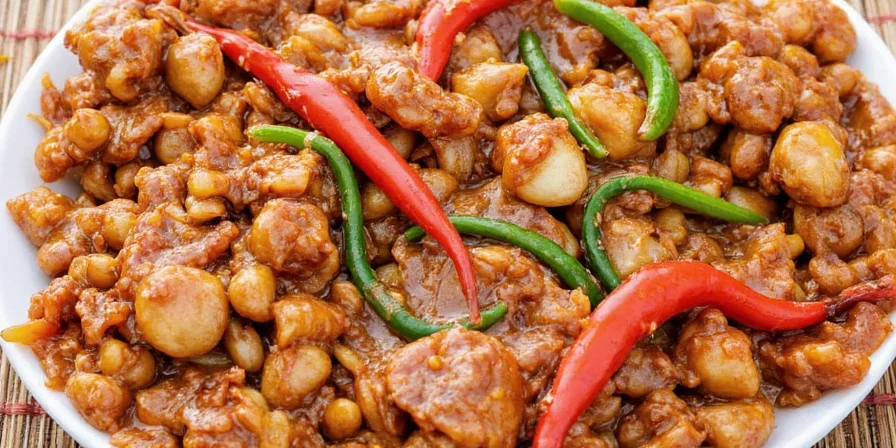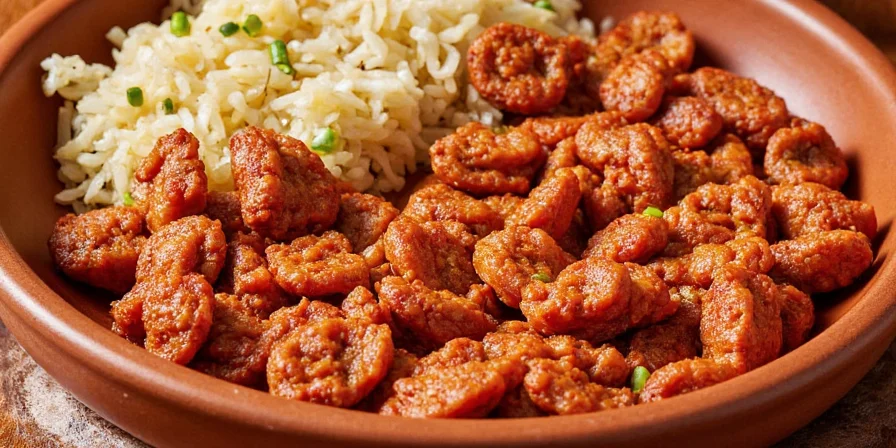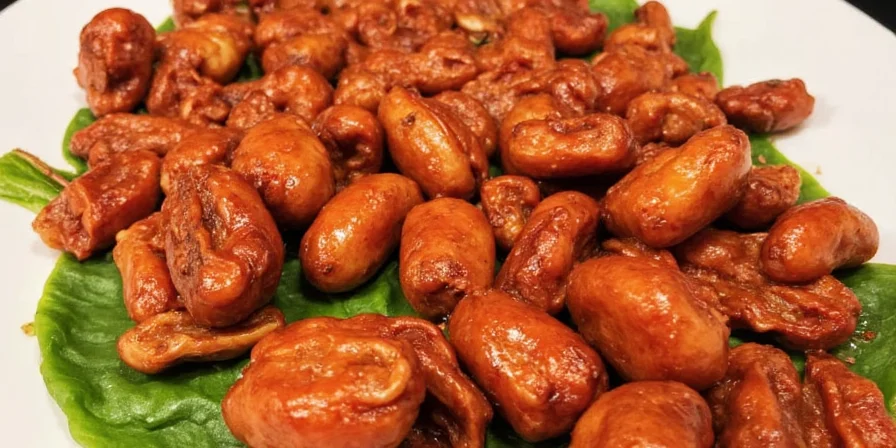Spice, Burn, and Bliss: 7 Must-Try Sichuan Dishes That Will Set Your Taste Buds on Fire!
Table of Contents
- Introduction: What Makes Sichuan Cuisine So Special?
- Top 7 Sichuan Dishes to Spice Up Your Life
- Pro Tips: Mastering Sichuan Cooking at Home
- The Science Behind the Tingling Heat: Sichuan Peppercorns Explained
- Global Influence: How Sichuan Dishes Are Taking Over the World
- Conclusion: Embrace the Burn, One Dish at a Time
Introduction: What Makes Sichuan Cuisine So Special?
Sichuan cuisine, often referred to as 川菜 (chuān cài), is one of China's most famous culinary traditions. Known for its bold flavors, liberal use of chili peppers, and that iconic tingly sensation from Sichuan peppercorns, this regional fare is like a full-body sensory experience wrapped in a single bite.
The magic lies in the concept of 七味 (qī wèi) — or “seven tastes” — which includes spicy, sour, sweet, bitter, salty, aromatic, and numbing. No wonder it’s hard to eat just one bite!
Top 7 Sichuan Dishes to Spice Up Your Life
Here are seven of the most beloved Sichuan dishes that every spice lover should try — whether in Chengdu or your own kitchen.
- Kung Pao Chicken (宫保鸡丁)
- Mala Hot Pot (麻辣火锅)
- Dan Dan Noodles (担担面)
- Fish-Flavored Pork Shreds (鱼香肉丝)
- Mapo Tofu (麻婆豆腐)
- Twice-Cooked Pork (回锅肉)
- Chongqing Spicy Chicken (重庆辣子鸡)
A classic stir-fried dish with diced chicken, peanuts, vegetables, and a punchy sauce made with dried chilies and Sichuan peppercorns. It’s got heat, sweetness, and that unmistakable numbing aftertaste.
If you’re going all-in on Sichuan flavor, mala hot pot is the ultimate adventure. The broth is a bubbling cauldron of red oil, chili, and Sichuan pepper, perfect for dipping meats, tofu, and veggies until they’re cooked to perfection.
This street food staple features hand-pulled noodles served in a rich, spicy sauce with minced pork, scallions, and a drizzle of sesame paste. Originally sold by vendors who carried their goods in baskets on poles (thus the name), these noodles pack a flavor punch in every slurp.
Despite its name, there’s no fish involved. This dish gets its signature tangy-sweet-spicy flavor from pickled chili, ginger, garlic, and vinegar. It’s a masterclass in balancing flavors without overpowering the palate.
Creamy tofu bathed in a sauce so rich and fiery it’ll make your tongue dance. Served with minced beef and a heap of ground Sichuan peppercorn, this dish embodies everything Sichuan food stands for: softness, freshness, spiciness, and numbing heat.
This dish starts with boiled pork belly, then pan-fried until crispy, and finally tossed into a sizzling mix of fermented black beans, garlic sprouts, and chili bean paste. The result? Crispy, tender, and bursting with umami.
Bite-sized chicken pieces fried to golden perfection and then tossed into a mountain of dried chilies and peppercorns. This dish isn’t just spicy — it’s a full-on chili avalanche. Eat slowly and enjoy the ride.

Quick Comparison Table: Sichuan Dishes by Heat Level and Texture
| Dish | Heat Level (1-5) | Texture | Signature Ingredient |
|---|---|---|---|
| Kung Pao Chicken | 4 | Crispy + Tender | Peanuts & Dried Chilies |
| Mala Hot Pot | 5 | Varies | Sichuan Pepper & Chili Oil |
| Dan Dan Noodles | 3 | Slippery Noodles | Sesame Paste |
| Fish-Flavored Pork Shreds | 2 | Soft + Crunchy | Vinegar & Pickled Chili |
| Mapo Tofu | 4 | Soft + Gooey | Fermented Bean Paste |
| Twice-Cooked Pork | 3 | Crispy Pork Belly | Fermented Black Beans |
| Chongqing Spicy Chicken | 5 | Crispy + Chewy | Dried Red Chilies |
Pro Tips: Mastering Sichuan Cooking at Home
You don't need to travel to Chengdu to enjoy authentic Sichuan flavors. Here are some expert tips to help you recreate that fiery magic in your own kitchen:
- Don’t Skip the Toasted Peppercorns: Sichuan peppercorns should be lightly toasted before grinding. This enhances their floral aroma and ensures maximum tingling effect.
- Use High-Quality Chili Oil: The base of many Sichuan sauces, chili oil brings depth and heat. Try making your own by infusing oil with crushed chilies, garlic, ginger, and spices.
- Balance Is Key: Sichuan food thrives on contrast — sweet vs. spicy, crunchy vs. soft, salty vs. sour. Always taste as you go and adjust accordingly.
- Invest in a Good Wok: A carbon steel wok allows for quick heat distribution and ideal searing — essential for stir-fries and braises.
- Prep Ahead: Sichuan dishes often require fast cooking techniques. Mise en place (prepping ingredients ahead) is crucial to keep up with the pace.
The Science Behind the Tingling Heat: Sichuan Peppercorns Explained
What exactly makes Sichuan peppercorns different from regular black pepper or chili peppers?
It turns out, the tingling numbness comes from a compound called hydroxy-alpha-sanshool. Unlike capsaicin (which activates pain receptors to create a burning sensation), sanshool actually stimulates touch and vibration receptors, tricking your brain into thinking your lips are buzzing.
- Origin: Native to the Sichuan province of China.
- Taste Profile: Citrusy, floral, and slightly piney.
- Pairings: Works best with chili, garlic, soy sauce, and star anise.

Global Influence: How Sichuan Dishes Are Taking Over the World
From London to Los Angeles, Sichuan cuisine has gone global — and it’s not slowing down. Why? Because people love bold, exciting flavors that challenge the palate and offer something new.
- In New York City, Sichuan-style dry pots and mapo tofu have become menu staples in trendy Chinese restaurants.
- In Europe, fusion chefs are experimenting with Sichuan-inspired burgers, ramen bowls, and even desserts.
- Even fast-food chains have hopped on the bandwagon — think KFC in China offering spicy Sichuan chicken wraps!
Conclusion: Embrace the Burn, One Dish at a Time
Sichuan cuisine is more than just fire and fury — it’s a deep, nuanced, and incredibly rewarding culinary tradition. Whether you're a seasoned chef or a curious home cook, diving into these dishes will expand your flavor horizons and ignite your passion for spice.
So next time you see a dish labeled “Sichuan style,” don’t shy away. Lean in, take a bite, and let your taste buds do the happy dance they’ve been waiting for.












 浙公网安备
33010002000092号
浙公网安备
33010002000092号 浙B2-20120091-4
浙B2-20120091-4